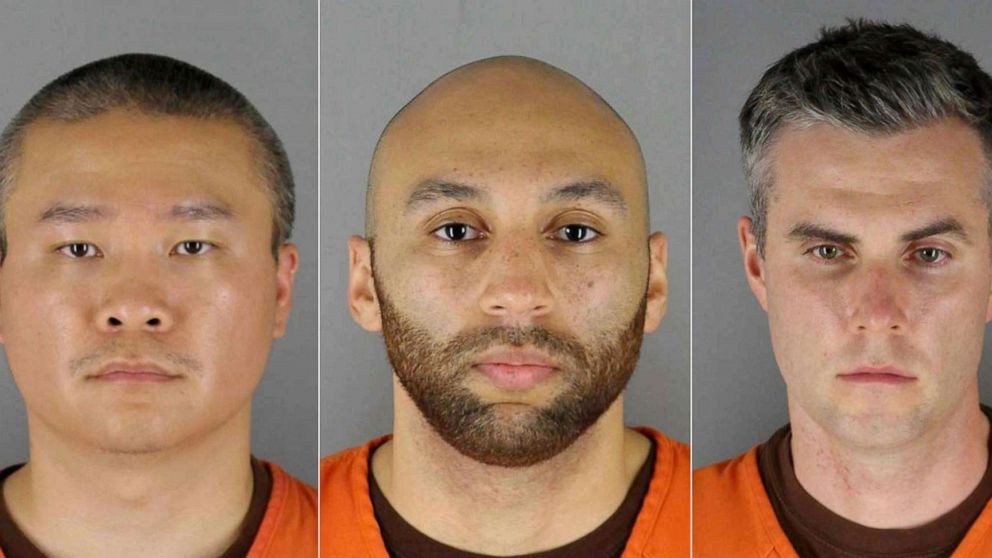Op-Ed: Officers Kueng, Lane, and Thao Deserve the Same Sentence as Officer Chauvin
February 24th, 2022, believe it or not, was likely a more historic day than April 20th, 2021. The murder case against Derek Chauvin was fairly clear-cut: he murdered George Floyd by kneeling on his neck for nine and a half minutes. He was sentenced to 22.5 years in prison and is awaiting sentencing after pleading guilty to federal felonies for murdering George Floyd and assaulting a black child (while still awaiting trial, alongside his wife, for a $100,000 tax evasion scheme). All told, in spite of not getting the sentence of 30 years many wanted, he is likely to spend close to 30 years in prison and will be lucky to get a few miserable years outside prison walls before he dies. The case against the other three was much more contentious: some guessed all would be acquitted, some guessed Lane might be for performing CPR and asking if Floyd should be rolled over, some guessed Thao might for never touching Floyd, etc. At the end of the day, a federal jury made the right choice and held that if a suspect is in your custody, they are in your care. They held that officers have a duty to intervene against fellow officers, a legal precedent on top of another that will fundamentally change the standards to which police officers are held in America. If one officer kills a suspect unlawfully, the two, three, four, or more officers who did nothing to stop them can face the same punishment.
There are a few major questions this verdict has raised. One is how it will impact the state charges: the federal charges were for civil rights violations for failing to provide medical care, and, in the cases of Thao and Kueng, for failure to stop Chauvin. The state charges are for accessory to murder. Many think that they will plead guilty, but I doubt it. They took the federal case to trial, and it is my belief that they feel the term "accessory to murder" carries a worse denotation than failing to intervene. Either way, these officers could face life in prison. Chauvin took a plea deal in exchange for a 25-year sentence, but the other three officers took their cases to trial and lost big time: the jurors ruled quickly and unanimously not only that Kueng, Thao, and Lane were guilty, but that their inaction directly caused the death of George Floyd. As a result, they could face life in prison. That is unlikely to happen, but, because of how the jury ruled, their sentencing range goes from three to five years up to 10 years or more.
These three officers deserve the same sentence that Chauvin got: 25 years. But Lane was only convicted of one charge while Kueng and Thao were convicted of two? That doesn't matter. Lane was the one who started the process that led to George Floyd's murder by drawing his gun on the unarmed man who was sitting in his car. Thao was the one who kept back the crowd that was trying to help George Floyd. All three heard the crowd shout that Floyd was dying (ranging from a medical professional to ordinary citizens with common sense), all three heard Floyd shout that he couldn't breathe and cry out for his mother, and Lane and Kueng felt and even said that Floyd had stopped moving and didn't have a pulse while still restraining him for two minutes afterward. They chose not to accept responsibility for their actions, Lane hired an attorney named Earl Gray who has made a living getting crooked cops off the hook, and Lane tried to use the Rittenhouse/Potter tactic of tearing up on the stand.
This case also highlights another need for reform: Kueng, Thao, and Lane were found guilty of felonies and are looking at a maximum sentence of life in prison, but the judge let them out on bond until their sentencing in June. Former Officer Eric DeVelkenaere was convicted of a felony and sentenced to three years in prison in Missouri for the 2019 murder of a black man, and he was allowed to remain free while his case was appealed. No judge in their right mind would allow a felon already sentenced to prison to go free while appealing their case, so why should police officers be treated any differently? This needs to change, and it needs to change now.

Comments
Post a Comment